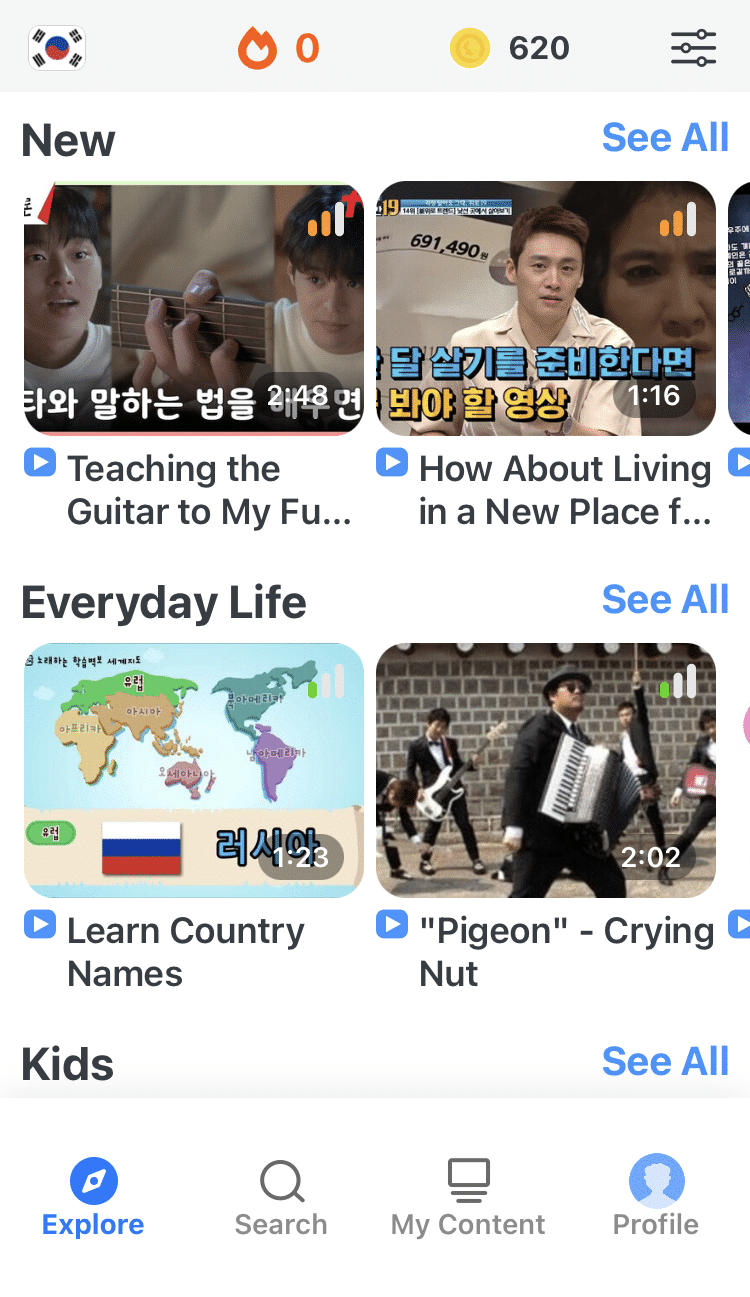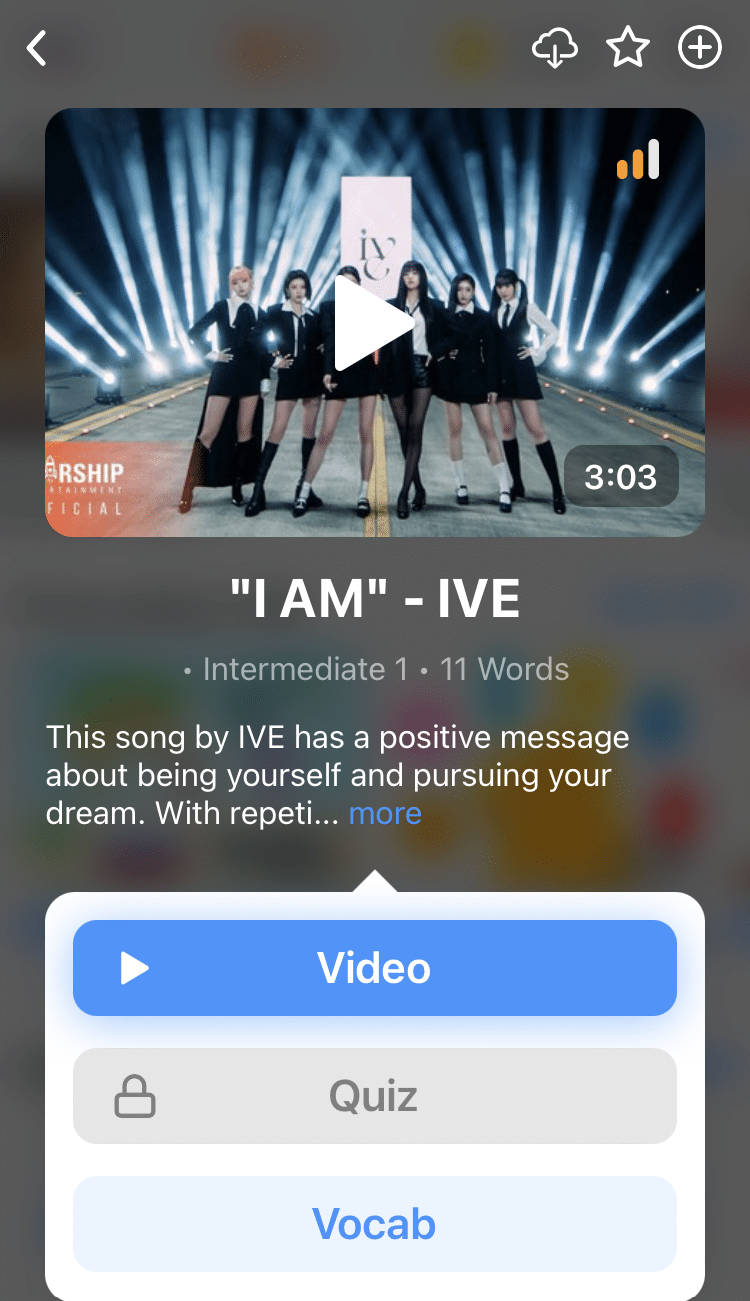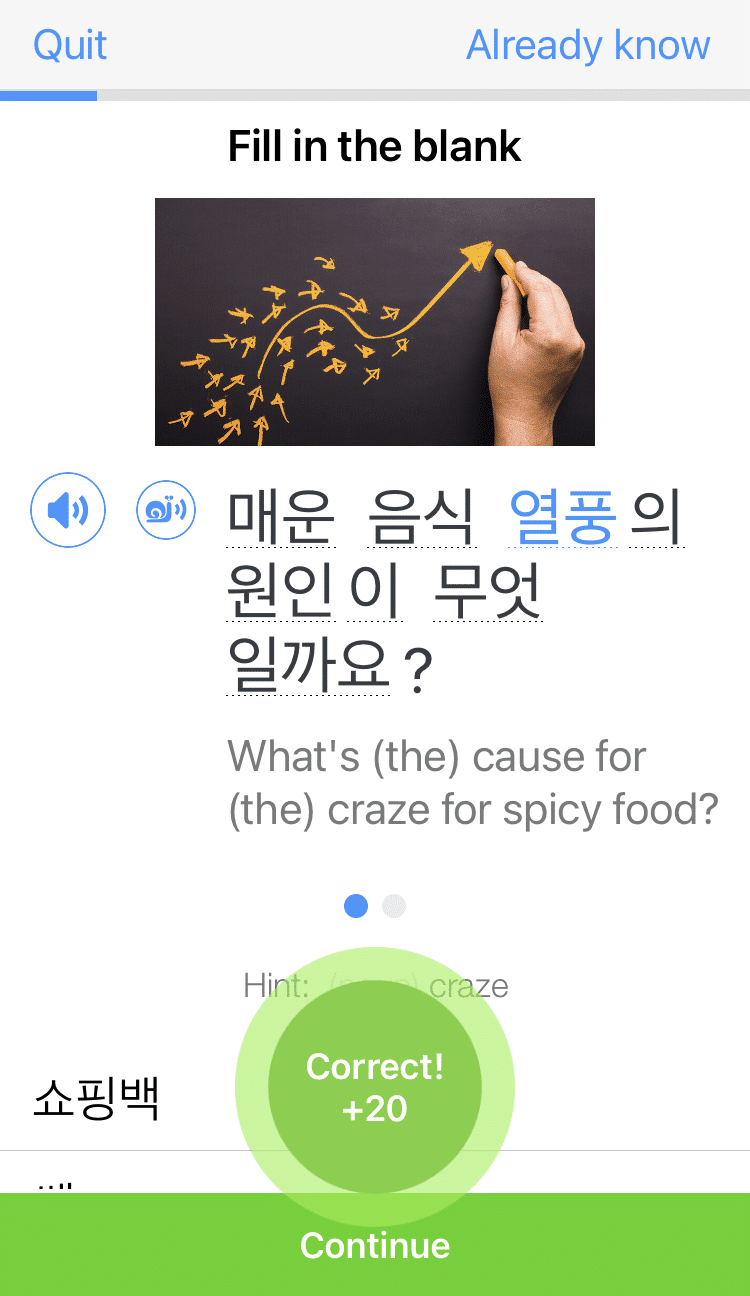
How to Say Good Night in Korean: 8 Ways to End the Day
Your evening routine may be busy, but it’s not complete without a nighttime salutation to mark the end of your day!
And if you’ve started learning Korean greetings, then you probably know that they’re more than just mundane conversation pieces.
Etiquette is a big deal in Korean culture, and greetings are just one aspect of it. So even a simple nightly farewell can carry a lot of magnitude.
So, here are eight ways you can say “good night” in Korean!
Contents
- 1. 잘 자요 – Sleep well (formal)
- 2. 안녕히 주무세요 – Sleep well (formal)
- 3. 잘 자 – Sleep well (informal)
- 4. 좋은 꿈 꿔요 – Dream good dreams (formal)
- 5. 편안한 밤 되세요 – Have a comfortable night (formal)
- 6. 굿밤 – Good night (slang)
- 7. 굿나잇 – Good night (slang)
- 8. 꿀잠 – Sweet dreams (slang)
- And One More Thing...
Download: This blog post is available as a convenient and portable PDF that you can take anywhere. Click here to get a copy. (Download)
1. 잘 자요 – Sleep well (formal)
Pronunciation: jal ja-yo
The phrase is relatively formal (again, the 요 at the end will tell you!) so you can use it for elder family members as well as your seniors.
However, from my observations, I’ve found 잘 자요 to be used a bit more casually than 안녕히 주무세요. It’s pretty common to hear it among more familiar acquaintances, such as between co-workers who are close in age.
2. 안녕히 주무세요 – Sleep well (formal)
Pronunciation: ahn-nyung-hee ju-mu-se-yo
You might recognize the 안녕 at the beginning of this phrase as the standard way to say “Hello” in Korean. When translated literally, 안녕 means “peace” or “to be at peace.” So 안녕히 주무세요 can mean that you’re wishing someone a peaceful snooze.
This phrase for saying “good night” in Korean is formal in nature, so you should use it for your parents, elders and other social superiors (such as your boss). It’s very frequently used and it’s my personal go-to for anyone who’s my senior.
The inclusion of 세요 (more specifically, the 요) is what makes this phrase respectful. This small addition to phrases automatically boosts their formality.
If you want to be even more courteous, you can switch out 주무세요 with 주무십시오 (ju-mu-ship-shi-o), to say 안녕히 주무십시오. This is reserved for those who really deserve that extra respect, although you probably won’t find many instances in which it’s needed.
3. 잘 자 – Sleep well (informal)
Pronunciation: jal ja
This is the informal form of 잘 자요, made possible by simply removing the 요. It’s short and sweet and rolls nicely off the tongue since both words start with the same consonant.
This phrase is very common among friends, family members, and when speaking to someone around your age or younger. In my personal friend group, it’s the greeting we use most often before we split up and head off to bed.
4. 좋은 꿈 꿔요 – Dream good dreams (formal)
Pronunciation: joh-eun kkum kkwo-yo
You can remove the 요 to say 좋은 꿈 꿔, which is appropriate for use among your buddies.
While it can be used among adults that are around your age or status, I’ve heard this phrase spoken often to youngsters and children before they head off to bed.
For couples, there’s sometimes a cute alteration to this expression. One may playfully implore their sweetheart 내 꿈 꿔 (nae kkum-kkwo), which means “Dream of me.”
5. 편안한 밤 되세요 – Have a comfortable night (formal)
Pronunciation: pyu-nahn-han bahm dwae-se-yo
This formal statement wishes the person a relaxing rest of the night, quite similar to the English expression “Have a pleasant night.” (밤 is the Korean word for “night”).
This is a polite phrase commonly used among adults. It’s a bit of a mouthful, especially since the first three syllables end in the same consonant (try saying it three times fast!). So if you’re having trouble, take your time enunciating.
6. 굿밤 – Good night (slang)
Pronunciation: guut-bahm
This is a Konglish (Korean-English) phrase. It’s a combo of 굿, a transliteration of the English word “good,” and 밤, the Korean word for night.
This is a Korean slang term commonly seen in text, so you’d see it more often in online spaces and social media. It’s most commonly used by youths on digital platforms such as Kakaotalk, Korea’s number one social messaging app.
While it’s not a phrase you’d normally use in person, it’s definitely a funny and modern send-off that you can use with your pals online!
By the way, Korean slang lessons can be a nifty addition to your Korean studies. After all, the country boasts a very active social media scene, and most natives are connected to the net and embrace the fun and convenience of slang in their interactions.
7. 굿나잇 – Good night (slang)
Pronunciation: guun-na-eet
Similar to 굿밤, this is also a slang term.
One difference between the two is that 굿나잇 is entirely an English transliteration of “Good night.” 나잇 is just a Korean phonetic spelling of the English “night.” So none of the words actually have a standard Korean definition.
Again, you probably wouldn’t say this out loud to someone, especially if they’re senior to you in any way. But you can find it being used casually by social media users.
8. 꿀잠 – Sweet dreams (slang)
Pronunciation: kkul-jam
The phrase 꿀잠 is equivalent to the English expression “Sweet dreams.”
꿀 means “honey” and 잠 means “sleep.” So, when you use this phrase, you’re wishing someone honey-sweet dreams!
This is a cute modern slang that would primarily be found online, although it can slip into some casual conversations as an affectionate way to bid your pals goodnight.
Consuming Korean media is a great way to memorize which terms can be used in person and which should remain online only. Watching your favorite K-dramas on a learning program like FluentU, for example, can provide useful context for new words and phrases.
FluentU takes authentic videos—like music videos, movie trailers, news and inspiring talks—and turns them into personalized language learning lessons. You can try FluentU for free for 2 weeks. Check out the website or download the iOS app or Android app. P.S. Click here to take advantage of our current sale! (Expires at the end of this month.)
Before you hit the hay, make sure you know what to say!
Using the proper nighttime salutation is a good opportunity to practice your knowledge of both the Korean language and etiquette.
Download: This blog post is available as a convenient and portable PDF that you can take anywhere. Click here to get a copy. (Download)
If you enjoyed this post, you're already halfway to having the time of your life learning Korean with FluentU!
FluentU makes it possible to learn with K-pop videos, funny commercials, entertaining web series and more. Just a quick look will give you an idea of the variety of FluentU videos on offer:
FluentU really takes the grunt work out of learning languages, leaving you with nothing but engaging, effective and efficient learning. It's already hand-picked the best videos for you (which are organized by level and topic), so all you have to do is simply choose any video that strikes your fancy to get started.
Each word in the interactive captions comes with a definition, audio, image, example sentences and more.
Access a complete interactive transcript of every video under the Dialogue tab, and easily review words and phrases from the video under Vocab.
You can use FluentU’s unique Quiz Mode to learn the vocabulary and phrases from the video through fun questions.
FluentU keeps track of what you're learning, and tells you exactly when it's time for review, giving you a 100% personalized experience.
Review sessions use video context to help embed the words in your memory.
Start using the FluentU website on your computer or tablet or, better yet, download the FluentU app from the iTunes or Google Play store. Click here to take advantage of our current sale! (Expires at the end of this month.)
And One More Thing...







